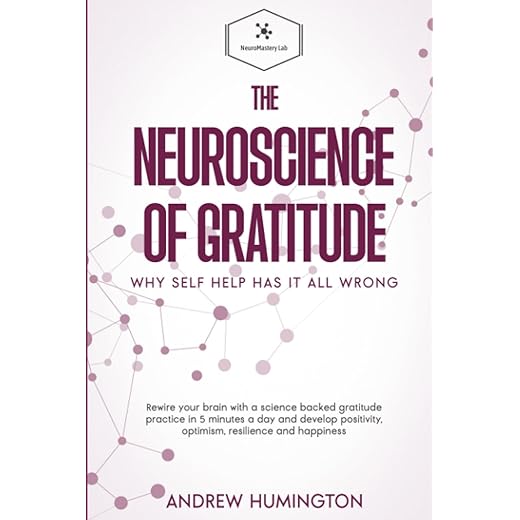Hey there! Have you ever noticed how a little bit of gratitude can go a long way? Well, in this blog post, we’re going to dive into the wonderful world of gratitude and explore just how it can help reduce stress and improve our mental health. Trust me, you’re in for a treat! So sit back, relax, and let’s embark on this gratitude-filled journey together.
Cultivate a Attitude of Gratitude with These Popular Picks
Understanding Gratitude
Gratitude is a powerful emotion that can have a profound impact on our well-being and overall happiness. In this section, we will delve into what gratitude really means and why it is so important. We will also explore how practicing gratitude can shift our focus from negative to positive aspects of life, leading to improved mental health.
What is Gratitude?
Gratitude is simply the act of expressing appreciation for the things we have, whether they are tangible or intangible. It is about recognizing and acknowledging the goodness in our lives, no matter how big or small. This could be anything from a delicious cup of coffee in the morning to the support of loved ones during challenging times.
The Importance of Gratitude
Gratitude is not just a feel-good emotion; it has numerous benefits for our mental and emotional well-being. Here are some compelling reasons why cultivating gratitude is crucial:
- Enhanced Happiness: When we focus on the positive aspects of our lives and express gratitude for them, it naturally boosts our happiness levels. By taking the time to appreciate what we have, we shift our attention away from what we lack, leading to a greater sense of contentment.
- Reduced Stress: Gratitude has been shown to reduce stress levels and improve our ability to cope with adversity. When we practice gratitude, we train our minds to focus on the present moment and the positive aspects of our lives, reducing anxiety and worry.
- Improved Relationships: Expressing gratitude towards others strengthens our relationships and fosters a sense of connection. When we show appreciation for the people in our lives, it creates a positive and supportive environment, leading to deeper connections and increased happiness.
Shifting Focus with Gratitude
One of the remarkable things about gratitude is its ability to shift our focus from negativity to positivity. By consciously practicing gratitude, we train our minds to notice and appreciate the good things in our lives, even amidst challenges. Here’s how gratitude helps us shift our focus:
- Reframing Perspective: Gratitude allows us to reframe our perspective and see the silver linings in difficult situations. For example, instead of getting frustrated about a long commute, we can be grateful for the opportunity to listen to our favorite podcast or enjoy the beautiful scenery along the way.
- Appreciating the Present Moment: Gratitude helps us become more mindful and present in our daily lives. By focusing on what we have and being grateful for it, we learn to savor the present moment and find joy in the little things.
- Cultivating Positive Thinking: Gratitude promotes positive thinking, which has a powerful impact on our overall well-being. When we consistently practice gratitude, we train our minds to look for the good, leading to a more optimistic and positive outlook on life.
Incorporating Gratitude into Your Life
Now that we understand the importance of gratitude, let’s explore some practical ways to incorporate it into our daily lives:
- Gratitude Journaling: Set aside a few minutes each day to write down three things you are grateful for. This simple practice can help shift your focus towards the positive aspects of your life.
- Expressing Gratitude to Others: Take the time to thank the people in your life who have made a positive impact. Send a heartfelt note, express your gratitude in person, or even give a small, thoughtful gift.
- Meditation and Mindfulness: Incorporate gratitude into your meditation or mindfulness practice. Take a moment to reflect on the things you are grateful for and let that feeling of appreciation wash over you.
In conclusion, gratitude is a powerful practice that can transform our lives. By cultivating gratitude, we can shift our focus from negativity to positivity, leading to improved mental health and overall well-being. So, let’s embrace gratitude and start reaping its many benefits today!
Gratitude and Stress Reduction
In our fast-paced, modern lives, stress has become an all-too-common companion. From demanding work schedules to personal challenges, stress can take a toll on our physical and mental well-being. But did you know that practicing gratitude can be an effective tool in reducing stress? In this blog section, we will explore the powerful connection between gratitude and stress reduction. We will discuss how cultivating gratitude can help us cope with stress, regulate our emotions, and improve our overall resilience.
Coping with Stress through Gratitude
When we are faced with stressful situations, it is easy to get caught up in negative thoughts and emotions. However, research has shown that practicing gratitude can shift our focus away from stressors and onto the positive aspects of our lives. By consciously acknowledging and appreciating the things we are grateful for, we can redirect our attention towards the good, reducing the impact of stress on our well-being.
Some ways in which gratitude can help us cope with stress include:
- Shifting Perspective: Gratitude allows us to reframe our thoughts and view challenging situations as opportunities for growth. Instead of feeling overwhelmed, we can approach stressors with a sense of gratitude for the chance to learn and develop resilience.
- Finding Joy in the Present: Gratitude encourages us to be present and mindful of the current moment. By focusing on what we have rather than what we lack, we can find joy and contentment, even in the midst of stress.
Emotion Regulation and Gratitude
Stress often triggers a range of negative emotions, such as anxiety, anger, and frustration. However, cultivating gratitude can help regulate these emotions and promote a more positive mindset. When we practice gratitude, our brains release dopamine and serotonin, which are neurotransmitters associated with feelings of happiness and well-being. This chemical response can help counteract the negative emotions that arise during stressful situations.
Some ways in which gratitude can aid in emotion regulation include:
- Reducing Anxiety: By focusing on the things we are grateful for, we can counteract feelings of anxiety and worry. Gratitude helps us shift our attention away from future uncertainties and towards the present moment, promoting a sense of calm and tranquility.
- Promoting Positivity: Gratitude acts as a natural antidote to negative emotions. When we actively practice gratitude, we train our brains to focus on the positive aspects of our lives, leading to a more optimistic outlook and an increased ability to handle stress.
Building Resilience through Gratitude
Resilience is the ability to bounce back from adversity and maintain a positive outlook despite challenges. Gratitude plays a significant role in building resilience, as it strengthens our ability to navigate tough situations with grace and determination. By fostering a mindset of gratitude, we can develop the resilience needed to overcome stress and thrive in the face of adversity.
Some ways in which gratitude helps build resilience include:
- Enhancing Problem-Solving Skills: When we approach stress with gratitude, we are more likely to focus on finding solutions rather than dwelling on problems. This shift in mindset enables us to tackle challenges head-on and develop effective strategies for overcoming them.
- Fostering Social Support: Gratitude promotes positive social interactions and strengthens relationships. When we express gratitude towards others, we create a supportive network that can provide emotional and practical assistance during stressful times.
In conclusion, integrating gratitude into our daily lives can have a profound impact on stress reduction. By shifting our perspective, regulating our emotions, and building resilience, gratitude becomes a powerful tool for navigating the challenges that life throws our way. So, let’s take a moment to reflect on the things we are grateful for and discover the transformative power of gratitude in reducing stress.
Remember, practicing gratitude is a journey, and each step we take brings us closer to a more peaceful and fulfilling life.
Gratitude and Mental Health
In today’s fast-paced and often stressful world, taking care of our mental health has become more important than ever. While there are many strategies and practices that can help, one approach that has gained significant attention is gratitude. In this blog section, we will explore the impact of gratitude on mental health and discuss how gratitude practices can enhance feelings of happiness, improve self-esteem, and foster a more positive outlook on life.
Enhancing Feelings of Happiness
Gratitude has been found to be strongly linked to feelings of happiness. When we express gratitude, whether it’s through journaling, making a list, or simply saying “thank you,” we activate the brain’s reward center, releasing dopamine and serotonin – the chemicals responsible for feelings of pleasure and happiness. Here are some ways in which gratitude can enhance happiness:
- Improved mood: Practicing gratitude regularly helps shift our focus towards the positive aspects of our lives, leading to an improved overall mood.
- Increased resilience: Gratitude acts as a buffer against stress and adversity, helping us bounce back from challenging situations and maintain a more positive outlook.
- Enhanced satisfaction: By recognizing and appreciating the good in our lives, we cultivate a sense of contentment and satisfaction.
Boosting Self-esteem
Gratitude can also have a significant impact on our self-esteem. When we practice gratitude, we acknowledge the goodness in ourselves and others, which can lead to increased self-worth and confidence. Here’s how gratitude can boost self-esteem:
- Recognition of accomplishments: Gratitude encourages us to reflect on our achievements and strengths, reinforcing a positive self-image and boosting self-esteem.
- Appreciation of others: Expressing gratitude towards others not only strengthens our relationships but also helps us recognize our own value in their lives, leading to increased self-esteem.
- Comparison reduction: Gratitude shifts our focus from comparing ourselves to others to acknowledging and appreciating our own unique qualities and accomplishments.
Fostering a Positive Outlook on Life
Gratitude can play a vital role in shaping our overall outlook on life. When we cultivate gratitude, we train our minds to focus on the positive aspects of life, fostering a more optimistic perspective. Here’s how gratitude can help foster a positive outlook:
- Mindfulness and presence: Gratitude practices often involve being present in the moment and noticing the small, positive details of everyday life. This mindfulness helps us appreciate the present and create a positive mindset.
- Reframing negative experiences: Gratitude allows us to find silver linings in difficult situations, helping us reframe negative experiences and see them as opportunities for growth or learning.
- Cultivating resilience: By focusing on what we are grateful for, we develop resilience and the ability to bounce back from setbacks, enabling us to maintain a positive outlook even in challenging times.
Incorporating Gratitude into Daily Life
Gratitude is a powerful practice that can transform our lives, improve our mental well-being, and enhance our relationships. By cultivating a grateful mindset, we can appreciate the present moment and find joy in even the smallest things. In this blog section, we will explore practical tips and strategies for incorporating gratitude into our daily routines.
Morning Gratitude Rituals
Starting your day with gratitude sets a positive tone for the rest of the day. Here are some morning rituals you can try:
- Gratitude Journal: Begin each morning by writing down three things you are grateful for. This simple practice helps shift your focus to the positive aspects of your life.
- Gratitude Affirmations: Create a list of gratitude affirmations and repeat them to yourself every morning. For example, “I am grateful for my health, supportive family, and the opportunities that come my way.”
- Gratitude Walk: Take a walk in nature and consciously appreciate the beauty around you. Notice the vibrant flowers, the soothing sound of birds chirping, or the refreshing scent of the air. This mindful walk can help you cultivate gratitude and start your day on a positive note.
Practicing Gratitude Throughout the Day
Incorporating gratitude into our daily activities can help us maintain a grateful mindset. Here are some strategies you can implement:
- Gratitude Pause: Set a reminder on your phone or computer to take a few moments throughout the day to pause and reflect on something you are grateful for. It could be a kind gesture from a colleague, a delicious cup of coffee from your favorite café, or a supportive message from a loved one.
- Gratitude Jar: Keep a gratitude jar on your desk or kitchen counter. Whenever something positive happens or you feel grateful, jot it down on a piece of paper and add it to the jar. Reviewing these notes at the end of the week or month can uplift your spirits and remind you of the good things in life.
- Gratitude Meditation: Set aside a few minutes each day to practice gratitude meditation. Find a quiet space, close your eyes, and focus on the things you are grateful for. Allow feelings of gratitude to wash over you, and visualize yourself expressing gratitude to others.
Cultivating Gratitude in Relationships
Expressing gratitude in our relationships can strengthen bonds and create a positive atmosphere. Here are some ways to incorporate gratitude into your interactions:
- Thank-You Notes: Take the time to write heartfelt thank-you notes to express your gratitude. Whether it’s for a friend who helped you move, a coworker who supported your project, or a family member who provided emotional support, a handwritten note can make a lasting impact.
- Gratitude Dates: Plan special outings with your loved ones where you can express your gratitude for their presence in your life. It could be a coffee date with a friend, a picnic with your partner, or a family dinner where you take turns sharing what you appreciate about each other.
- Gratitude in Conversations: Practice active listening and make a conscious effort to express gratitude during conversations. Acknowledge the efforts, kindness, or achievements of others and let them know how much you appreciate them.
Unlocking the Power of Gratitude: A Pathway to Inner Peace and Resilience
In conclusion, I firmly believe that incorporating gratitude into our daily lives can be incredibly beneficial for reducing stress and improving our mental health. By cultivating a grateful mindset and practicing gratitude regularly, we can experience a significant positive impact on our overall well-being and sense of contentment. So, why not give gratitude a try? I encourage you to embrace this powerful practice and witness the transformative effects it can have on your mental health.



















I would love to see the author cover the benefits of practicing gratitude in relationships. I’ve noticed that expressing gratitude towards my partner has really strengthened our bond and improved our overall relationship satisfaction.
That’s a fantastic suggestion! Expressing gratitude in relationships can have a profound impact on strengthening bonds and enhancing relationship satisfaction. I’ll definitely consider covering this topic in a future article. Thank you for your input!
I’ve found that keeping a gratitude journal has really helped me reduce stress and improve my mental health. Every night before bed, I write down three things I’m grateful for from that day. It helps me focus on the positive and let go of any negative thoughts or stressors.
I appreciate the article’s emphasis on gratitude, but I also think it’s important to acknowledge that there are times when it may be difficult to feel grateful, especially during challenging situations. It’s okay to acknowledge our negative emotions and work through them alongside practicing gratitude.
Thank you for your input! You make a valid point about the importance of acknowledging and processing negative emotions, especially during challenging times. It’s essential to strike a balance between gratitude and addressing our emotions authentically. Practicing gratitude doesn’t mean denying our struggles; it’s about finding moments of positivity amidst the difficulties.
Does anyone have any recommendations for incorporating gratitude into daily life for someone who is just starting out? I’m interested in trying it but not sure where to begin.
One additional benefit of gratitude that I’ve experienced is improved sleep. When I take a few moments before bed to reflect on what I’m grateful for, it helps calm my mind and relax my body, leading to a more restful sleep.
That’s an excellent point! Gratitude can definitely contribute to improved sleep quality. Taking the time to reflect on what we’re grateful for before bed can help shift our focus away from stress and promote relaxation. Thank you for sharing this additional benefit!
I used to be a very negative person, always focusing on the things that went wrong in my life. But once I started practicing gratitude daily, I noticed a significant shift in my mental health. It’s amazing how something so simple can have such a powerful impact.
Thank you for sharing your success story! It’s truly incredible how incorporating gratitude into our daily lives can transform our mental health. Your experience is a great reminder of the power of gratitude. Keep up the great work!
Thank you for sharing your experience! Keeping a gratitude journal is a wonderful practice and I’m glad to hear it has been helpful for you in reducing stress and improving your mental health. It’s a great way to shift your focus towards positivity.